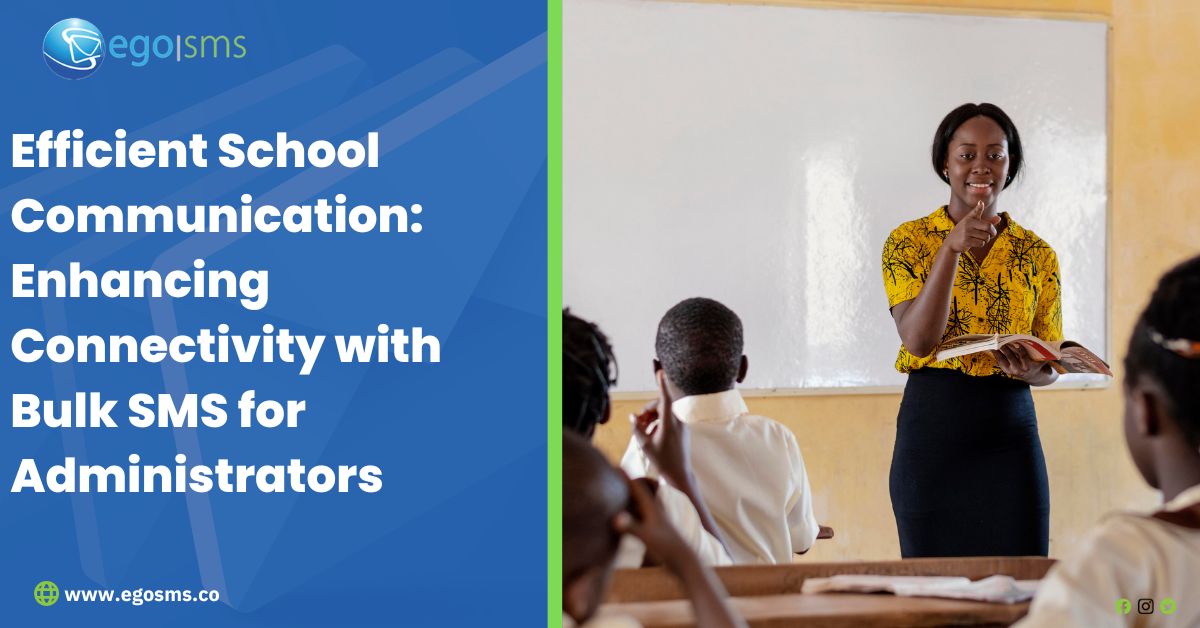
- Student Success: Effective communication keeps students informed about important academic events, deadlines, and resources. It helps students stay on track with their studies, assignments, and extracurricular activities. When students and their families are well-informed, students are more likely to perform well academically.
- Parental Involvement: Communication is a bridge that connects parents and guardians to their children’s education. Informed parents are better equipped to support their children’s learning, attend parent-teacher meetings, and actively engage in school activities.
- Student Safety: Schools need to communicate swiftly in case of emergencies, such as school closures due to natural disasters nearby, security threats, or health crises. Timely and accurate communication is essential for ensuring the safety of students and staff.
- Building Trust: Effective communication fosters trust between schools, parents, and the community. When parents and stakeholders feel informed and engaged, they are more likely to trust the school’s leadership and decisions.
- Transparency: Open and transparent communication allows parents and the community to understand the school’s policies, procedures, and goals. This transparency builds confidence in the school’s operations.
- Behaviour and Discipline: Clear communication regarding behavioural expectations and disciplinary actions helps students understand the consequences of their actions. Parents can be involved in addressing behavioural issues when they are informed promptly.
- Resource Allocation: Schools often rely on community support and funding. Effective communication helps schools inform the community about their needs and goals, which can lead to increased support and resources.
- Community Engagement: Schools are an integral part of the community. Effective communication encourages community members to participate in school events, volunteer, and provide valuable resources and expertise.
- Crisis Management: In times of crisis, such as natural disasters or accidents, clear communication is vital for coordinating efforts, ensuring the well-being of students and staff, and providing updates to concerned parties.
- Academic Support: Effective communication allows schools to identify students who may need additional academic support and intervention. Early intervention and communication can prevent students from falling behind.
- Parent-Teacher Collaboration: Communication between parents and teachers facilitates a collaborative approach to a child’s education. Teachers can share insights into a student’s progress, and parents can provide valuable information about their child’s learning style and needs.
- Feedback and Improvement: Regular communication channels, such as surveys and feedback forms, enable schools to collect input from parents, students, and staff. This feedback is invaluable for making improvements and adapting to changing needs.
Efficient school communication is crucial for administrators to maintain strong connections with students, parents, and staff. Bulk SMS (Short Message Service) can be a powerful tool to enhance connectivity and streamline communication in educational institutions.
Here’s how administrators can use bulk SMS effectively for school communication:
- Announcements and Reminders:
- Send out important announcements such as school closures, holidays, or special events.
- Remind parents and students about upcoming exams, parent-teacher meetings, or deadlines for forms and fees.
- Emergency Alerts:
- Use bulk SMS to quickly inform parents and staff about emergencies like weather-related closures, security alerts, or health advisories.
- Ensure that your bulk SMS system can send urgent messages to all recipients within seconds.
- Attendance and Absence Notifications:
- Send daily or weekly attendance reports to parents.
- Notify parents when their child is absent from school, along with the reason for the absence.
- Event Promotion:
- Promote school events such as sports competitions, cultural functions, or fundraisers via SMS.
- Include event details, dates, and venue information in the SMS.
- Parent-Teacher Communication:
- Allow parents to communicate with teachers or school administrators through SMS, making it easier for them to address concerns or seek information.
- Set specific hours for such communication to ensure that teachers are not overwhelmed with messages outside of school hours.
- Grade and Progress Updates:
- Send periodic grade reports or progress updates to parents.
- Include information on academic performance, attendance, and behaviour.
- Fee Payment Reminders:
- Send automated reminders to parents about upcoming fee payments or outstanding balances.
- Include a link for payment or instructions on where and how to pay.
- Surveys and Feedback:
- Collect feedback from parents, students, and staff through SMS surveys.
- Use this feedback to improve school services and address any concerns.
- Personalized Messages:
- Utilize data from your school management system to send personalized messages, addressing recipients by name.
- Personalization can enhance the effectiveness of your communication.
- Opt-In and Opt-Out Options:
- Ensure that parents and staff can easily opt-in or opt out of receiving SMS messages.
- Respect their preferences for communication channels.
- Data Security and Privacy:
- Implement strong data security measures to protect sensitive information shared via SMS.
- Comply with data protection regulations, when applicable.
- Monitoring and Reporting:
- Use analytics tools to monitor the effectiveness of your SMS campaigns.
- Analyze open rates, response rates, and recipient feedback to refine your communication strategy.
- Integration with Other Systems:
- Integrate your bulk SMS system with other school management and communication platforms for seamless information flow.
- Training and Guidelines:
- Provide training to staff on how to use the bulk SMS system effectively and in accordance with school policies.
- Develop clear guidelines for appropriate SMS communication.
- Cost Management:
- Choose a cost-effective bulk SMS service provider that offers competitive pricing and fits within your budget.
By implementing these strategies and best practices, school administrators can enhance connectivity, streamline communication, and maintain strong relationships with students, parents, and staff through bulk SMS. It’s important to adapt your communication strategy to the specific needs and preferences of your school community. To begin communication with shareholders for your business sign up to EgoSMS here.

